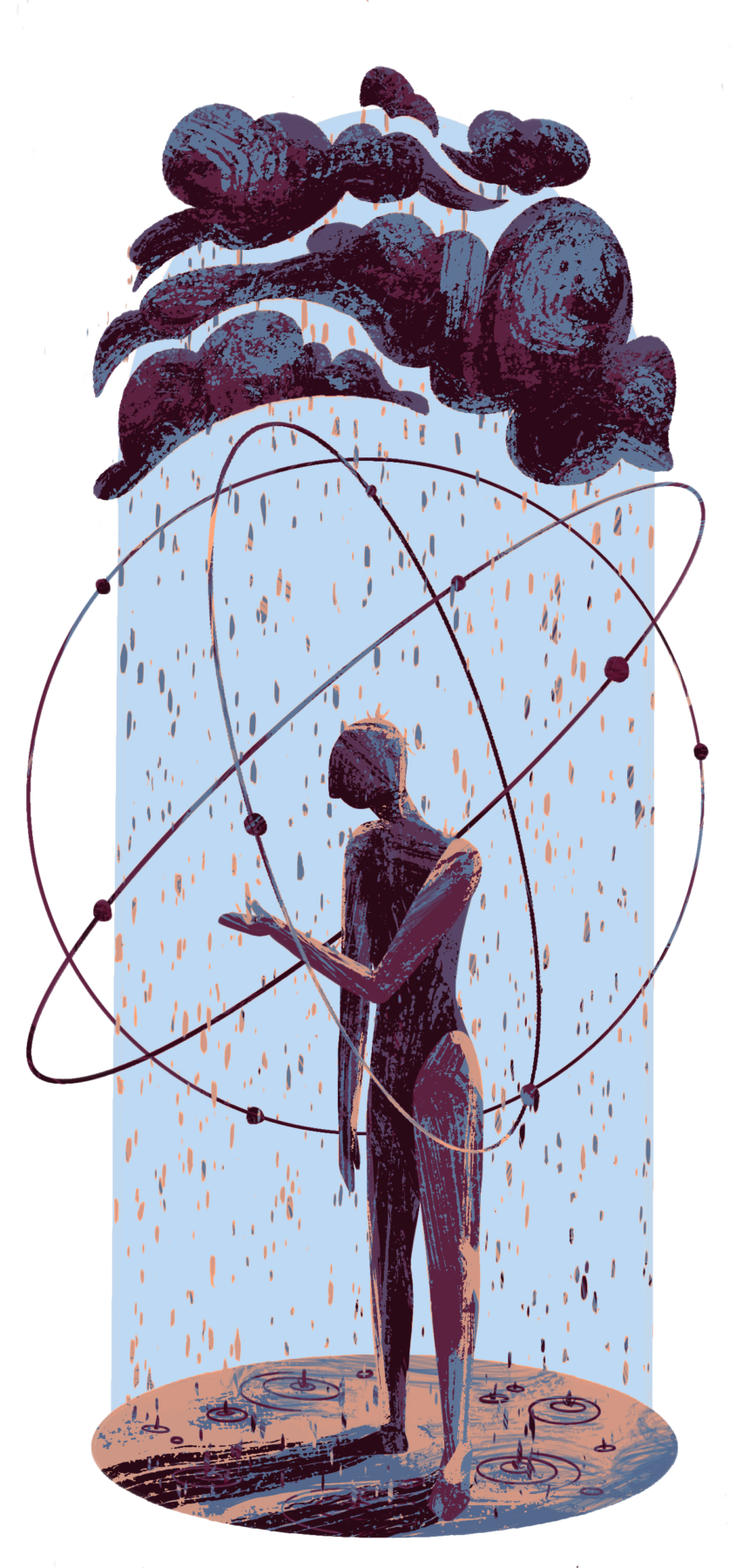It’s always raining in New Haven—a soft, loveless drizzle. I wander in a wide parabola around Cross Campus as water freckles my arms. When I return to my dorm room, I’m in a strange, melancholy mood. I pull out my computer and begin to write. Thoughts float into my mind like soap bubbles: iridescent, brilliant, then gone. As I write, I find myself drawing from the same reservoir of words. My high school English teacher first noticed this tendency. She introduced me to the phrase “cinnamon words”—a term coined by journalist Ben Blatt in 2017 to describe shards of language that the writer has an affinity for. In twelfth grade, I made a list of my own cinnamon words: pomegranate, tongue, drift, and loquat. If I had to make a list now, it would include the words specter, pale, haunt, and invisible. I’m not spiritual, and I don’t believe in ghosts. But I love the idea of giving substance to the unformed and realizing the unreal. What happens when the orbitals, atoms, and intermolecular forces that define this arm, this floor, this room, collapse? What happens when the architecture of the body dissolves? What happens when physics falls apart? What’s left behind?

—Hannah Han

